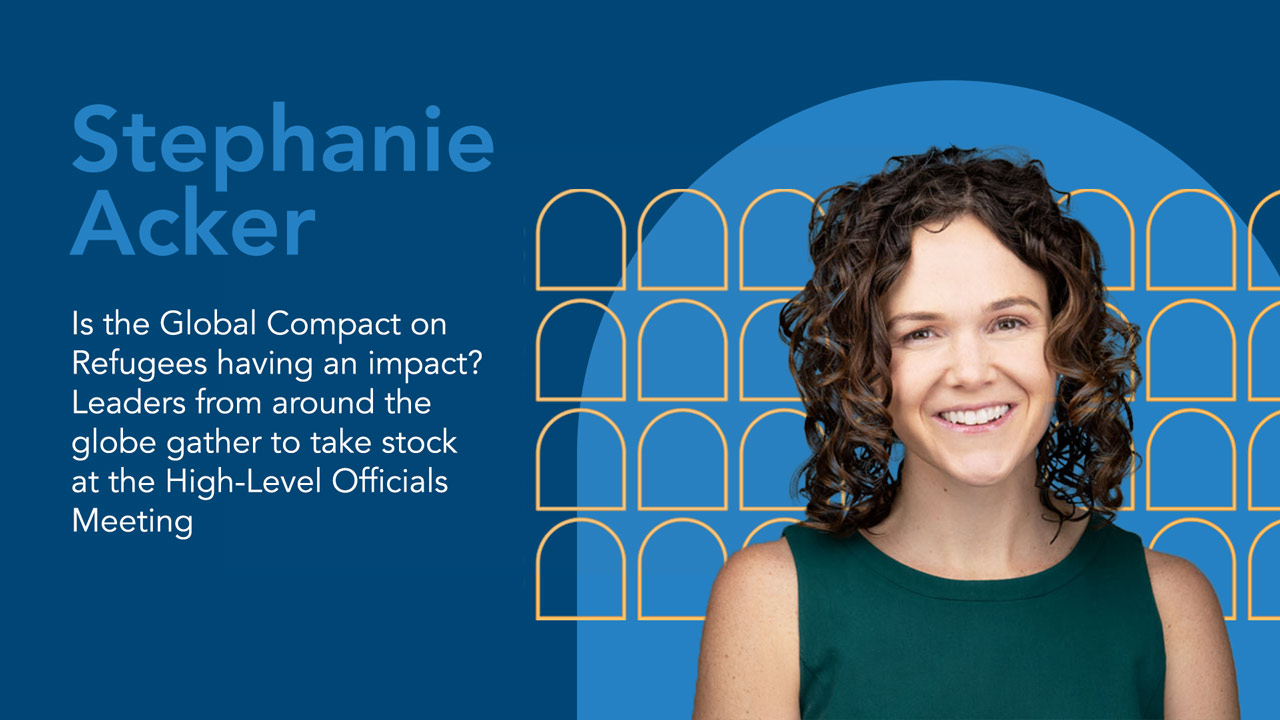In mid-December 2021, I joined hundreds of leaders from around the globe for a virtual two-day gathering to assess progress on the implementation of the Global Compact on Refugees (GCR). Leaders represented UN member states, non-UN member states, city governments, international organizations, the private sector, academia, sports organizations, and refugee-led organizations. The agenda was largely dedicated to updates from delegations on the status of their pledges and charting what needs to be done before the next Global Refugee Forum scheduled for 2023.
If you’re new to following the GCR, here’s some background information
- The GCR was agreed in 2018 and represented a shared commitment from the international community in responding to the refugee crisis (it was built on the framework and values of the UN resolution in 2016 called the New York Declaration).
- The Global Refugee Forum is an international convening every four years focused on announcing pledges and setting priorities to make the aims of the GCR a reality. The first forum in 2019 drew more than 3,000 stakeholders and 1,400 pledges.
- This convening was the first of the High-Level Officials Meetings (HLOM) that are set to take place every two years in between the Global Refugee Forum and serve as a ‘mid-term review.’
The progress quantified in UNHCR’s Indicator Report was countered by several discouraging trends.
In preparation for the HLOM, UNHCR released their Indicator Report (read it or watch a summary) and delved into all of its themes with preparatory roundtables on funding, partnerships, solutions, and self-reliance. (If you have time and don’t want to watch all 14 of these, these three panels were the most interesting: Refugee Inclusion through Data, Innovative Financing, and Peaceful Coexistence).
The Indicator Report quantified international progress on each of the GCR’s four objectives. There were some positives, but largely countered by some significant negative trends.
Three key policy themes emerged around responsibility-sharing, solutions, and self-reliance, each of which could impact what we do and how we do it.
This is a part of a blog post by Stephanie Acker.
